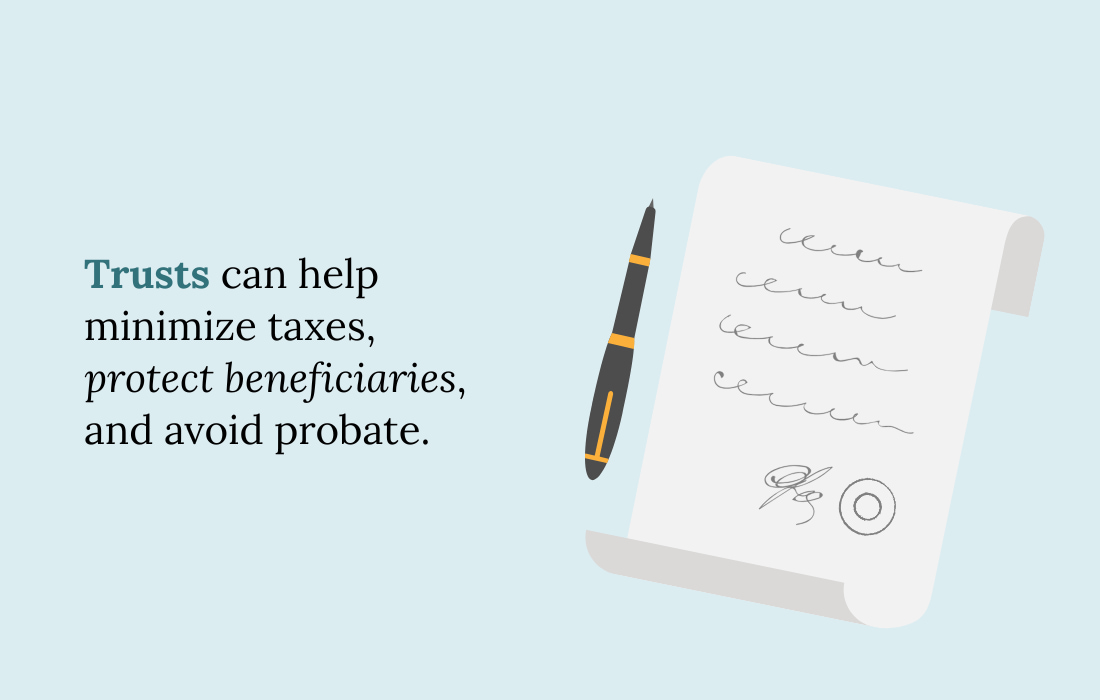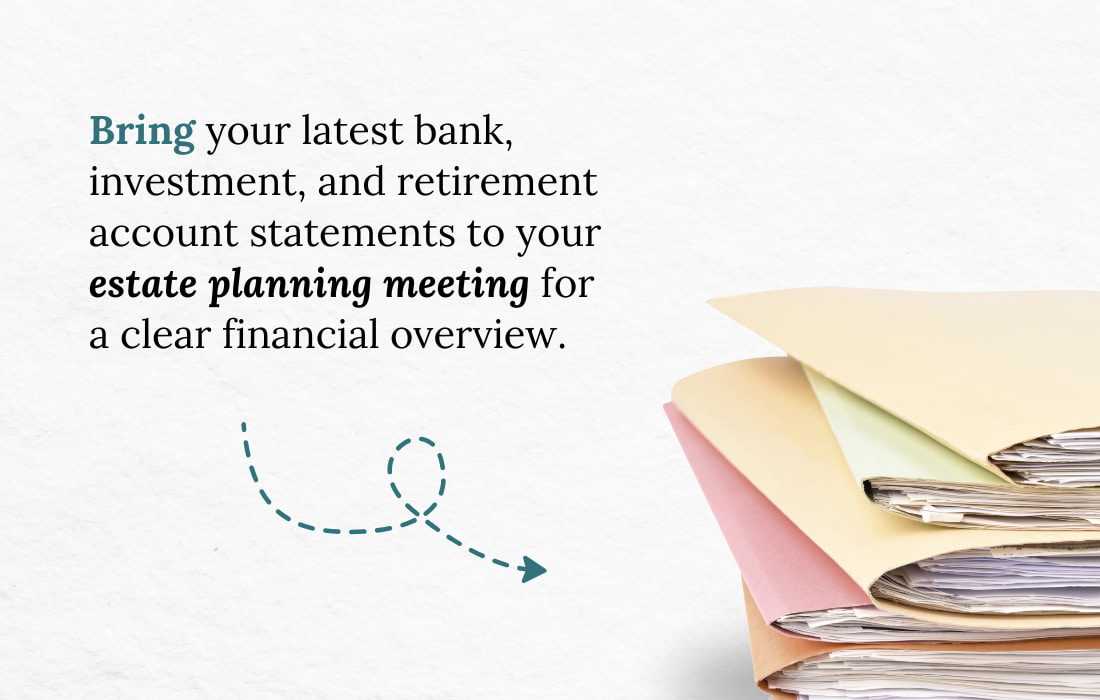
Starting real estate planning
Written by Tiffany Woodfield, Mali Coach, TEP®, CRPC®, CIM®
Until I started working in the financial industry, I didn’t think much Real estate planning.
I realized that I needed will, but I thought it was something I could do later when I was older. I did not understand the importance of organizing things early and updating my documents regularly.
For me, the biggest challenge was to try to imagine a time when I was no longer.
It was easier to put my head in the sand and assumed that everything would be fine. Everything will go to my husband and then to my children.
I couldn’t even imagine what will happen to my children, who are still from the palace, if something happens both of them From us.
As my experience in the industry grows, I worked with customers, I realized the prevalence of real estate planning. People often assumes and do not realize the consequences of non -planning.
These are just some consequences of not doing your real estate planning:
- You can leave your children without your choice.
- Your wife does not control automatically.
- There may be conflicts, especially if you have not contacted your heir.
- Your family may lose a lot of money for taxes and management costs.
Now, not everything is death and depression.
But I want people to understand that if you do not create a real estate plan, the emotional and financial costs of your loved ones will be much greater than the one -making cost.

Why ask the correct questions is important
The correct questions put the basis for a strong real estate plan, and make sure that your desires are honored and that your family is care.
Asking the right questions helps you to think about what you own and who should be responsible. It helps reduce arguments and makes things easier for your loved ones. And most importantly, it allows you to understand your options and make enlightened options.
So in this post, I will share the main questions that you must ask on your real estate scheme and yourself When doing real estate planning.
10 questions to ask Real estate
The real estate scheme meeting is an important step in protecting your wealth and ensuring that your desires are implemented smoothly.
But the value of this meeting depends on asking the correct questions. Here are ten studied questions to ask your conversation:
1. How will tax taxes be imposed in Canada and the United States?
If you have origins or family in both countries, ask how Tax laws Vary And how to reduce tax exposure across the border.
2. Should I prepare confidence, and what kind will be better for my situation?
Funds can help reduce taxes, protect beneficiaries, and avoid the commandments. Your scheme can help determine the confidence structure that fits your goals.
3. What happens if you become incapable?
Understand how to delegate or Health guidance It works in both countries and how to ensure that it is legally recognized as property lives or owns.
4. Who should be called as an executor or guardian?
Discuss what makes someone a strong choice and whether the boundary considerations may hold his role.
5. Do I need a different will for the assets held in another country?
If you carry real estate or investments in both Canada and the United States, you may need more than one will to ensure the appropriate dealing with those assets.
6. How many times should I update my real estate plan?
Changes in life – such as marriage, divorce or step – can lead to a need to reconsider your plan. Request guidance on the monuments that must provoke the review.
7. What should I think when naming the beneficiaries?
The names of the beneficiaries of accounts and insurance policies can exceed your will. Ensure that it is in line with your general plan.
8. How can I provide loved ones with special needs or unique conditions?
Whether it is a member of the family with disabilities or a complex family dynamic, the scheme can help organize your property to meet their needs without endangering the benefits or causing conflict.
9. What steps can I take now to reduce possible conflicts later?
Clear communication and legal documents can help prevent family conflict. Your plan can suggest how to document your desires and who must be involved in discussions.
10. Are there any common mistakes that customers you make – and how can I avoid them?
Take advantage of their experience. Learning can help you to oversee others in avoiding unnecessary costs, delay and emotional pressure for your heirs.

10 questions to ask yourself During the real estate planning process
1. What do I have?
You want to think about the elements that you have both Financial value and/or emotional. Everyone thinks about large origins, such as homes, but also includes property that carries your own meaning.
2. Who I want to give my own things?
This is where you think about Family and friends And who you want to have your property.
3. Who will take care of my children?
If you have Minor childrenConsider who will be the best person to behave as a guardian.
4. Who should take care of my pets?
If you have pets, think about who will be the best person to take care of if you are unable.
5. What do I want to happen because I am online?
Think about what you want to happen to your online calculations and social media definition files. Should someone close to you manage or delete it?
6. Who trust in making decisions for me if I am not able to do so?
This may be if you are seriously injured or sick. Who do you trust to make options about your health care?
7. How do I want to remember?
Think about what you want people to say about you and how you want to honor after your death.
8. Am I ready to share my wishes with my family?
Are you comfortable to talk to your family about what you want? Open discussions help everyone understand your desires and reduce conflicts when they disappear.
9. What do I want to happen with my money?
Think about how you want Savings Or any money You should be used after you went. Do you want to go to the family, friends, or specific charities?
10. Do I have any plans or dreams I want to make sure of their implementation?
If you have special goals or dreams, such as starting a scholarship, consider how these plans occur after you no longer exist.

Documents to submit to your real estate planning meeting
1. Current will
If you already have a will, bring it to review and update as necessary.
2. Trust documents
If you have any prepared boxes, join these documents as well.
3. Financial data
Bring modern banking data, investment account data and retirement account information to give a clear picture of your financial situation.
4. Property verbs
Include any actions of real estate or documents related to property ownership.
5. Insurance policies
Bring life insurance policies, health insurance information, and any other relevant insurance documents.
6. Address documents
For vehicles, boats, or any other property entitled, including address documents.
7. Assets and debt menu
Prepare a list separating your assets (what you have) and debts (what you owe) to help understand your total financial position.
8. Identity documents
Bring your command license or any other form of identity, as well as any information about social security.
9. Healthcare directives
If you have any advanced directives, health care lawyer or live commandments, bring these documents as well.
10. The beneficiaries of the beneficiaries
If you have beneficiaries listed in accounts such as retirement plans or life insurance, bring this information for review.
💎 Related Post: What should be brought to a date for real estate planning

Common questions about real estate planning
Should I create a will, trust or both?
Making a decision to create a will or confidence, or both depend on your circumstances. A will It helps to direct how your assets are distributed after death, while a Confident It helps to avoid the will and manage assets during your life and after death.
What is the difference between will and real estate planning?
Only One Real estate planning.
How can I reduce taxes on my real estate?
to Reducing taxesStart planning now to take advantage of strategies during your life. For example, preliminary, confidence creation, beneficiaries’ labels, shared ownership and insurance use.
Who should be called as a port or a guardian?
for you port Or the guardian needs to be a person who understands your desires, is trustworthy, directed towards detail, and can manage your property. I recommend you to ask the person early because people often reduce the commitment of the time it involves behaving as an executor or guardian.
How can I make sure my loved ones are financially protecting?
To ensure financially protect your loved ones, Work with a professional Those who understand the laws in your area to create a comprehensive real estate plan. Do not put assumptions that everything will go to your wife, or that children will not differ.
What steps should I take to keep up update my real estate plan?
To keep up update your real estate plan, Review this regularlyEspecially after great life changes, such as marriage, having children, or changing jobs. Second, talk to your family or trusted friends about your desires to make sure your plans are understood.
What is the real estate planning questionnaire?
Real estate planning questionnaire is the list of questions that It helps you to think about your desires When it happens to your property and care when you no longer exist.
What are the factors that must be taken into account when planning your whale?
When creating a real estate plan, think about Family dynamics And do not assume that everyone will coexist. Connect your desires with your family so that you can prefer to solve any possible conflicts. You will also need to determine who is best to make decisions on your behalf and the impact of these decisions.
Get the free guide and audio meditation to show your dreams
Broadcast
You will also get e -mail messages or two per month with the latest blog posts about abundance, building wealth, showing and creating a satisfactory life.
Read more:
💎 What is real estate planning in Canada?
💎 17 tips for real estate planning for Canadians
💎 List of verification of simple real estate planning for Canadians
About the author

Tiffany Woodfield He is a financial coach, an expert across the border and co -founder of Swan Wealth, based in Kelowna, BC. As director of TEP and wallet manager, Tiffany has extensive work experience with successful professionals who want to leave a legacy and enjoy an adventure lifestyle and work manufacturing. Tiffany combined the wide knowledge of its background as a financial professional with training and her passion for personal development to help its customers create a unique road that allows them to live in their maximum capabilities. Tiffany was a regular contributor to Bloomberg TV and was interviewed with national and international publications, including Globe and Mail and Barron.





